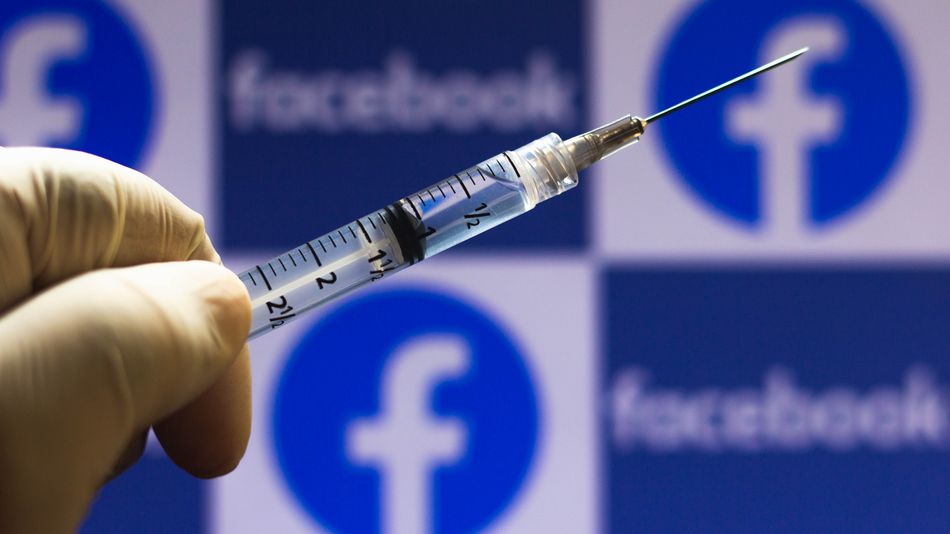Technology
12 people are behind most of the anti-vaxxer disinformation you see on social media


If you catch your old college roommate sharing COVID-19 vaccine misinformation on Facebook, the odds are that these falsehoods are coming from one of twelve people.
That’s right. Just twelve individuals.
A new from the and found that up to 65 percent of “anti-vaccine content” on Facebook and Twitter originated from twelve influencers within the anti-vaxxer movement.
The report focused on these twelve accounts after an analysis of content that was shared and posted on Facebook and Twitter 812,000 times between Feb. 1 and March 16.
On Facebook alone, the content from these individuals, which the reports dubs as the “Disinformation Dozen,” accounts for 73 percent of all anti-vaxxer content posted or shared on the platform in the last two months.
The largest anti-vaxxer influencer on social media, according to the report, is Joseph Mercola. Mercola is an alternative medicine promoter who runs a multimillion dollar online business selling treatments and dietary supplements. The FDA recently Mercola a warning over his sham treatments for COVID-19.
Another major culprit is Robert F. Kennedy, Jr. Kennedy, the nephew of John F. Kennedy, is perhaps one of the most high profile influencers in the anti-vaxxer community. Last month, Instagram him from the platform for violating the site’s coronavirus vaccine misinformation policy.
However, despite to deplatform him from Twitter and Instagram’s parent company, Facebook, Kennedy’s accounts remain on those social media services.
The other social media users in the “Disinformation Dozen” include Ty and Charlene Bollinger, Sherri Tenpenny, Rizza Islam, Rashid Buttar, Erin Elizabeth, Sayer Ji, Kelly Brogan, Christiane Northrup, Ben Tapper, and Kevin Jenkins.
While Facebook and Twitter have both committed to banning anti-vaccine content and the users who spread disinformation about vaccines, a majority of these twelve users have active accounts on Facebook, Twitter, and Instagram. According to the report, all of them have an active account on at least one of these platforms.
Health misinformation was a in 2020 amid the ongoing COVID-19 pandemic. According to the Center for Countering Digital Hate, more than 59 million people were reached on social media platforms at the end of last year by the 425 anti-vaxxer accounts which the organization tracks.
And, as the pandemic continues, the problem has not gone away. In fact, as coronavirus vaccines have begun to roll out over these past few months, anti-vaccination content has continued to surge.
For example, a recent from Media Matters For America found that beyond the 12 major influencers mentioned in this article, “micro-influencers” are having a moment on Instagram. Smaller accounts pushing misinformation are growing a following, violating Instagram’s vaccine misinformation policies, and operating undetected on the platform.
-

 Entertainment6 days ago
Entertainment6 days agoWhat’s new to streaming this week? (Jan. 17, 2025)
-

 Entertainment6 days ago
Entertainment6 days agoExplainer: Age-verification bills for porn and social media
-

 Entertainment5 days ago
Entertainment5 days agoIf TikTok is banned in the U.S., this is what it will look like for everyone else
-

 Entertainment5 days ago
Entertainment5 days ago‘Night Call’ review: A bad day on the job makes for a superb action movie
-

 Entertainment5 days ago
Entertainment5 days agoHow ‘Grand Theft Hamlet’ evolved from lockdown escape to Shakespearean success
-

 Entertainment5 days ago
Entertainment5 days ago‘September 5’ review: a blinkered, noncommittal thriller about an Olympic hostage crisis
-

 Entertainment5 days ago
Entertainment5 days ago‘Back in Action’ review: Cameron Diaz and Jamie Foxx team up for Gen X action-comedy
-

 Entertainment5 days ago
Entertainment5 days ago‘One of Them Days’ review: Keke Palmer and SZA are friendship goals
















